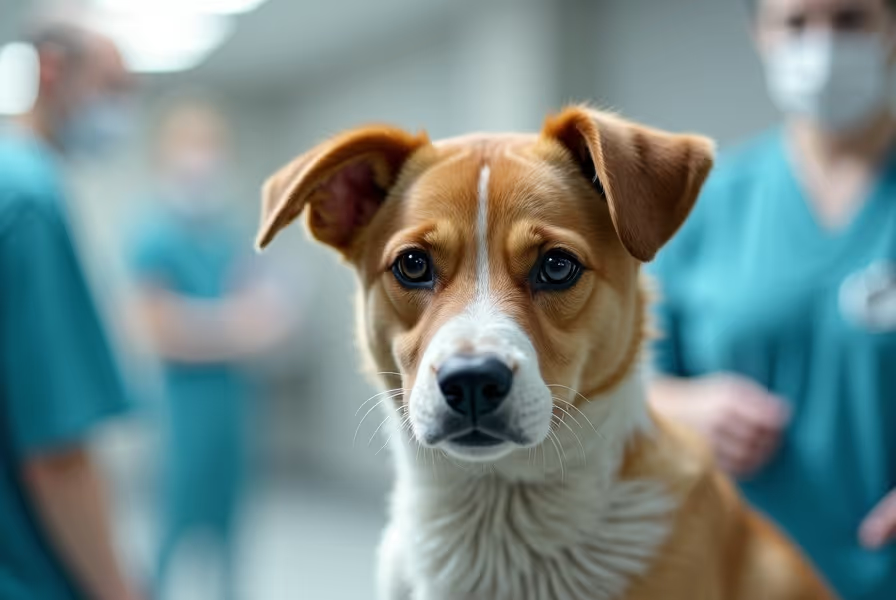Top Veterinary Colleges That Prepare You for Animal Care Careers
If you're passionate about animal health and looking to turn that love into a meaningful profession, choosing one of the best veterinary schools in the U.S. is essential. These schools not only offer top-tier veterinary medical programs, but they also prepare you for a wide range of animal care careers in rapidly growing fields.
Whether you're aiming to become a veterinarian, animal scientist, livestock consultant, or work in animal public health, choosing the right veterinary school is your first step toward achieving your goals.
Why Choosing the Right Veterinary Program Matters
The field of veterinary medicine continues to evolve, and so do the demands for skilled animal care professionals. According to the Bureau of Labor Statistics, the employment of veterinarians is expected to grow 19% from 2021 to 2031, much faster than the average for all occupations.
By attending an accredited and well-regarded veterinary school, you gain access to:
- Advanced clinical training with live animals
- Mentorship from experienced animal care specialists
- Cutting-edge research opportunities
- Strong job placements in veterinary medicine, animal care, and science
Top U.S. Veterinary Schools That Excel in Animal Care Training
Here's a list of veterinary colleges that consistently rank high for their animal science programs, clinical education, and research initiatives.
University of California, Davis – School of Veterinary Medicine
UC Davis is often recognized for its excellence in animal health research and clinical education. It's especially strong in large animal care, equine medicine, and public health.
- Offers Doctor of Veterinary Medicine (DVM), master's, and Ph.D. programs
- World-class veterinary hospital and diagnosticians
- Strong track record in preparing students for careers in wildlife health and livestock medicine
Cornell University – College of Veterinary Medicine
Located in Ithaca, NY, Cornell's program is known for its advanced facilities in animal diagnostics and its integration of veterinary science with global animal health strategies.
- Highly respected faculty in biomedical research and preventative animal care
- Access to the Cornell University Hospital for Animals
- Specializations in zoo and exotic animal medicine
Colorado State University – College of Veterinary Medicine and Biomedical Sciences
CSU offers a strong foundation in both small and large animal care. Its DVM program is designed to give students intensive hands-on experience.
- Home to one of the top veterinary teaching hospitals in the nation
- Emphasizes experiential learning early in the program
- Excellent for students interested in shelter medicine and public health careers
North Carolina State University – College of Veterinary Medicine
Located in Raleigh, NC, this veterinary school is noted for its emphasis on clinical training and its diverse specialties in animal health sciences.
- Structured clinical competencies program
- Faculty actively involved in global animal disease research
- Options in aquatics, lab animal medicine, and food safety
Texas A&M University – College of Veterinary Medicine & Biomedical Sciences
Texas A&M is well-known for its volume of student enrollment and its rigorous veterinary curriculum. It provides resources for career entry into livestock care, rural veterinary practice, and more.
- Comprehensive DVM curriculum including pathology and pharmacology
- Focus on veterinary business training and community outreach
- Offers special modules in disaster response and animal rescue
Key Factors to Consider When Selecting a Veterinary School
Not every program is right for everyone. Evaluate the following when selecting the best school for your animal care career goals:
- Accreditation: Confirm the school is accredited by the American Veterinary Medical Association (AVMA)
- Residency Options: Some schools offer in-state tuition or regional agreements
- Animal Care Focus: Choose programs aligned with your interest in pets, livestock, wildlife, or exotic animals
- Financial Aid: Look for scholarships, grants, or tuition assistance
- Student Support: Consider mentorship programs and career services
Popular Animal Care Career Paths After Veterinary School
After your veterinary education, you'll find careers in diverse industries and fields. Here are some high-demand roles for veterinary grads:
- Veterinarian in private practice or specialty fields
- Animal nutritionist or food safety consultant
- Research scientist in animal health
- Anesthesia specialist or veterinary surgical tech
- Animal welfare advocate or policy advisor
- Livestock production specialist or field consultant
Frequently Asked Animal Science & Veterinary School Questions
Frequently Asked Questions
Which veterinary school is hardest to get into?
The UC Davis School of Veterinary Medicine and Cornell's College of Veterinary Medicine have some of the most competitive acceptance rates. Admission requires strong GPAs, GRE scores, recommendation letters, and experience in animal care.
What degree do you need to become a veterinarian in the U.S.?
You need a Doctor of Veterinary Medicine (DVM) degree from an accredited veterinary college. Most students first complete a bachelor's degree in animal science, biology, or a related field.
What are some top-paying animal care careers?
Veterinary surgeons, anesthesiologists, and specialists in oncology or internal medicine tend to earn the highest salaries. Public health veterinarians and research scientists also command strong salaries, often exceeding $100,000 annually according to the Bureau of Labor Statistics.
How long does it take to complete a veterinary program?
Most DVM programs take four years to complete after earning a bachelor's degree. Some programs may offer accelerated options, but clinical practice and licensing requirements usually require a full curriculum.
Are there online programs for veterinary medicine?
Core veterinary degrees like the DVM must be completed in person due to clinical requirements. However, online learning is available for pre-vet courses, continuing education, and veterinary technician programs.











.svg)



